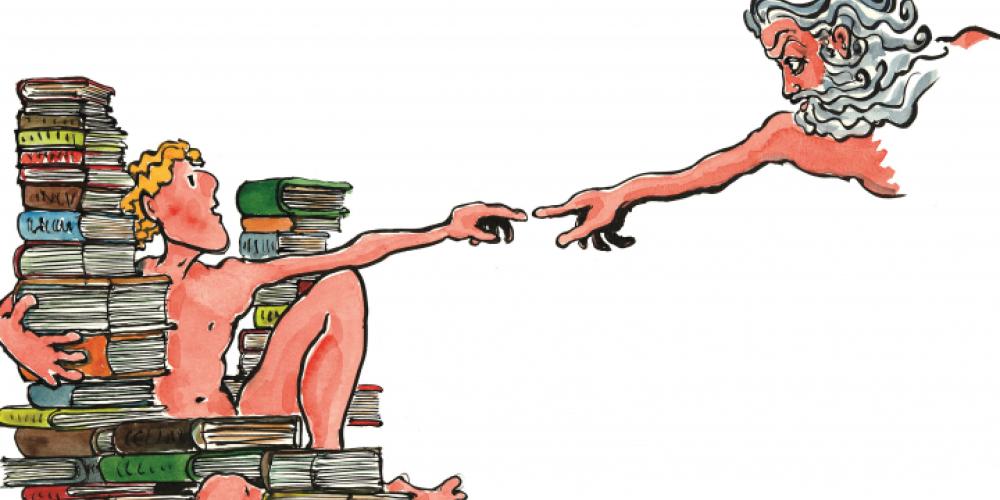
Professor Gily Coene, who published the book Vrij(heid) van Religie at the end of last year, sees it too. She pits the strictly neutralist liberal thinkers against a more pluralistic starting point that respects every different attitude to life. “I see a tradition in subjects and courses at VUB in which religion is seen as a meaningful human activity. So in this sense, religion is not necessarily contradictory to liberty or humanism,” she says. She is referring to lessons including Religious Criticism taught by Tinneke Beeckman and Introduction to Islam with Mohammed Ben Siamar. So religion has entered VUB, through both the Bible and the Koran – and hardly anybody has found it strange.
Religion at VUB
An independent university is looking for answers. What about freedom of expression? Where does extremism come from? What about religious symbols and hijabs? “In Flanders, liberal thinking is strictlys non-denominational. But in the Netherlands, for example, you have Protestants who are very liberal in how they deal with their religion,” says Coene. “In this sense, you can perfectly well be a liberal Muslim. You approach faith not as something you have to submit to, but as something that gives your life meaning. And you can also question it. What’s more, you can deconstruct the extremist movement from a liberal perspective. Religion is always about people: there is nothing in religion itself that compels people. They are responsible themselves, and you can appeal to them.” Julie Umbrain, president of the Free Inquiry Study Circle (Studiekring Vrij Onderzoek), recognises a role for VUB in the debate. “We believe in free thinking because we are seeking answers,” she says. “Through debate, through sharing opinions, through questioning ourselves, through independent research. It’s up to VUB to illuminate the dark places in our society.”